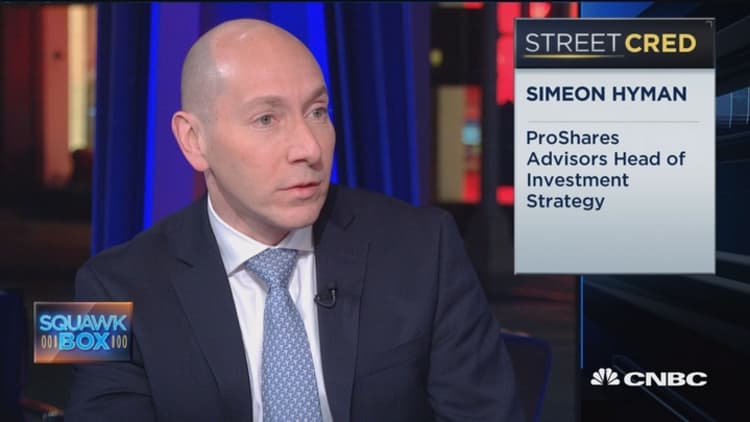
The recent weakness in financial stocks does not necessarily point to the onset of recession but is likely part of a market trough, Joseph Zidle, portfolio strategist at Richard Bernstein, said Wednesday.
The S&P 500 financials sector closed in bear market territory on Tuesday, hammered by fears of a European banking crisis, concerns about profitability as interest rates remain low and exposure to ailing energy firms.
Bank stocks and the broader market bounced back in European trade on Wednesday on reports Deutsche Bank is considering buying back billions of dollars worth of its bonds. U.S. equity futures also pointed to a higher open.
Popular barometers indicate recessionary risks are rising, in part explaining the underperformance of financials, Zidle said. But he noted current labor market conditions and consumer trends do not historically lead to economic downturns.
"Underneath the surface there's a real strong argument to be make that we're seeing a trough here," he told CNBC's "Squawk Box."
Consumer confidence remains high and employment figures are improving, he said. The number of Americans quitting their jobs is also rising, signaling that they are confident enough to bear the risk of leaving their positions, he added.
Zidle said he would "absolutely" be buying the market at this point, and said consumer-oriented stocks are his top choice.
In a sign lower energy prices are finally stimulating consumer spending, he noted that real retail sales are now exceeding nominal sales. That means Americans are buying more things because they are essentially cheaper.
Simeon Hyman, ProShares Advisors head of investment strategy, said the Deutsche Bank news is the catalyst for the current rally. But he warned that weakness this year is not just centered on growth concerns about China and falling energy prices, but earnings weakness across the board.
"Consumer discretionary, health care, and telecoms are the only sectors generating real earnings growth right now, so it's a little bit more pervasive than this, even though the short-term volatility sure has an element of the [Deutsche Bank] announcement to it," he told "Squawk Box."




